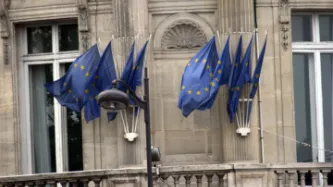Search
Content type: News & Analysis
Should the European Union agree to legitimise trade with a country that refuses to adhere to European legal standards? This is the fundamental question that will be addressed at tomorrow’s meeting among European privacy regulators when they publish their opinion on the data-sharing agreement known as the ‘Privacy Shield’, the replacement to the failed ‘Safe Harbour’ agreement.
Background
Many of the world’s largest companies, such as Google and Facebook, store their customers’ data in…
Content type: Advocacy
Following today's Justice Ministers Council meeting in Luxembourg where an agreement was reached on the proposal for a General Data Protection Regulation (GDPR), Privacy International and European Digital Rights (EDRi) issued the following statement:
In January 2012, the European Commission, following extensive consultations, published a draft Regulation. The initiative had three priorities - modernisation of the legal framework for the protection of personal data,…
Content type: News & Analysis
To read Privacy International's take on the ruling, go here.
What does the decision actually say?
The primary question that the Court was asked to consider was whether Google Search has obligations under the Data Protection Directive 1995, the EU legal framework regulating how public bodies and businesses deal with individuals’ personal data.
There were three primary issues at hand: the first was whether Google Inc., the international entity which operates Google Search, was under the…
Content type: News & Analysis
Since the European Court of Justice in May ruled in the “right to be forgotten” case, there has been a dizzying amount of debate about the decision, and its implications for privacy and free expression.
A main thread within these discussions is an old story that US Industry loves to tell and has told for some time: Europeans love privacy law, and Americans love free speech, and the twain shall never meet.
The Google Search case at the European Court of Justice has fuelled this view…
Content type: News & Analysis
NETMundial – a global conference initiated by the Brazilian government – has produced ‘The Multi-stakeholder Statement of São Paulo’, a Roadmap and Principles on internet governance that could herald new respect for the right to privacy online. However, the outcome document fails to adequately recognise the relationship between internet governance and mass surveillance, reflecting a larger problem that was present throughout the two-day meeting.
By the end of the conference, both the…
Content type: News & Analysis
Big data consists mainly of data that is openly available, created and stored. It includes public sector data such as national health statistics, procurement and budgetary information, and transport and infrastructure data. While big data may carry benefits for development initiatives, it also carries serious risks, which are often ignored. In pursuit of the promised social benefits that big data may bring, it is critical that fundamental human rights and ethical values are not cast aside.…
Content type: News & Analysis
On International Data Privacy Day, it is important that we all ask ourselves: who has access to our personal information? Who can find out where we’ve been and who we’ve called, who can read our emails and our text messages? Who can find which websites we access and which files we download?
Statistics released by Google and Twitter over the past week are a sobering reminder that it is not only the corporations to which we consensually provide this information which are able…
Content type: Press release
Google's latest Transparency Report, released at 3pm GMT this afternoon, shows that requests by European governments for the browsing history, email communications, documents and IP addresses of Google's users have skyrocketed since the Transparency Report was launched three years ago. Countries in the European Union made 7,254 requests about 9,240 users or accounts between July and December 2012, averaging over 1,200 requests a month. This represents over a third of all requests made by…
Content type: News & Analysis
Tuesday’s letter to Google CEO Larry Page, personally signed by 29 European data protection authorities, ordered the corporation (inter alia) to give users greater control over their personal information. The notions of trust and control are emphasised throughout the letter, and Google is urged to "…develop new tools to give users more control over their personal data" and "collect explicit consent for the combination of data for certain purposes". It is good news that the…
Content type: News & Analysis
In the PI office, we have daily debates about which platforms to use for our organizational operations. As a privacy charity, we are naturally concerned about the integrity of our own information services and resources, but we frequently receive queries about the best technologies to use from a variety of other organizations, some with very complex threat models.
The sad fact is that we are all poorly served by the range of services currently available. We worry that there is a significant…
Content type: News & Analysis
The European Commission is about to announce the compulsory fingerprinting of all visitors to the EU, both visa holders and non-visa holders, along with automated border checks of EU nationals through the analysis of fingerprints and facial scans.
The Communication from December 2007, available here on the PI site, outlines the plans. Below we summarise the plans. Also see PI's commentary in the Guardian CommentisFree section from February 11, 2008.
Critical Analysis
The Communication does…
Content type: Press release
The global watchdog Privacy International has today simultaneously filed complaints against Google's controversial Gmail service with privacy regulators in sixteen countries.
The move creates Google's biggest challenge yet in the short but turbulent public debate over its new email service.
Complaints have been filed with the privacy and data protection regulators of France, Germany, the Netherlands, Greece, Italy, Spain, Czech Republic, Belgium, Denmark, Sweden, Ireland, Portugal, Poland,…









